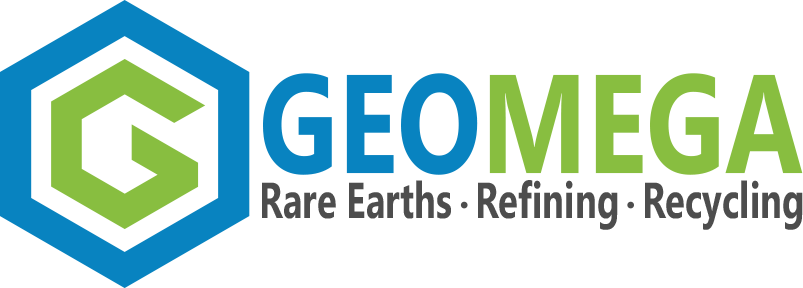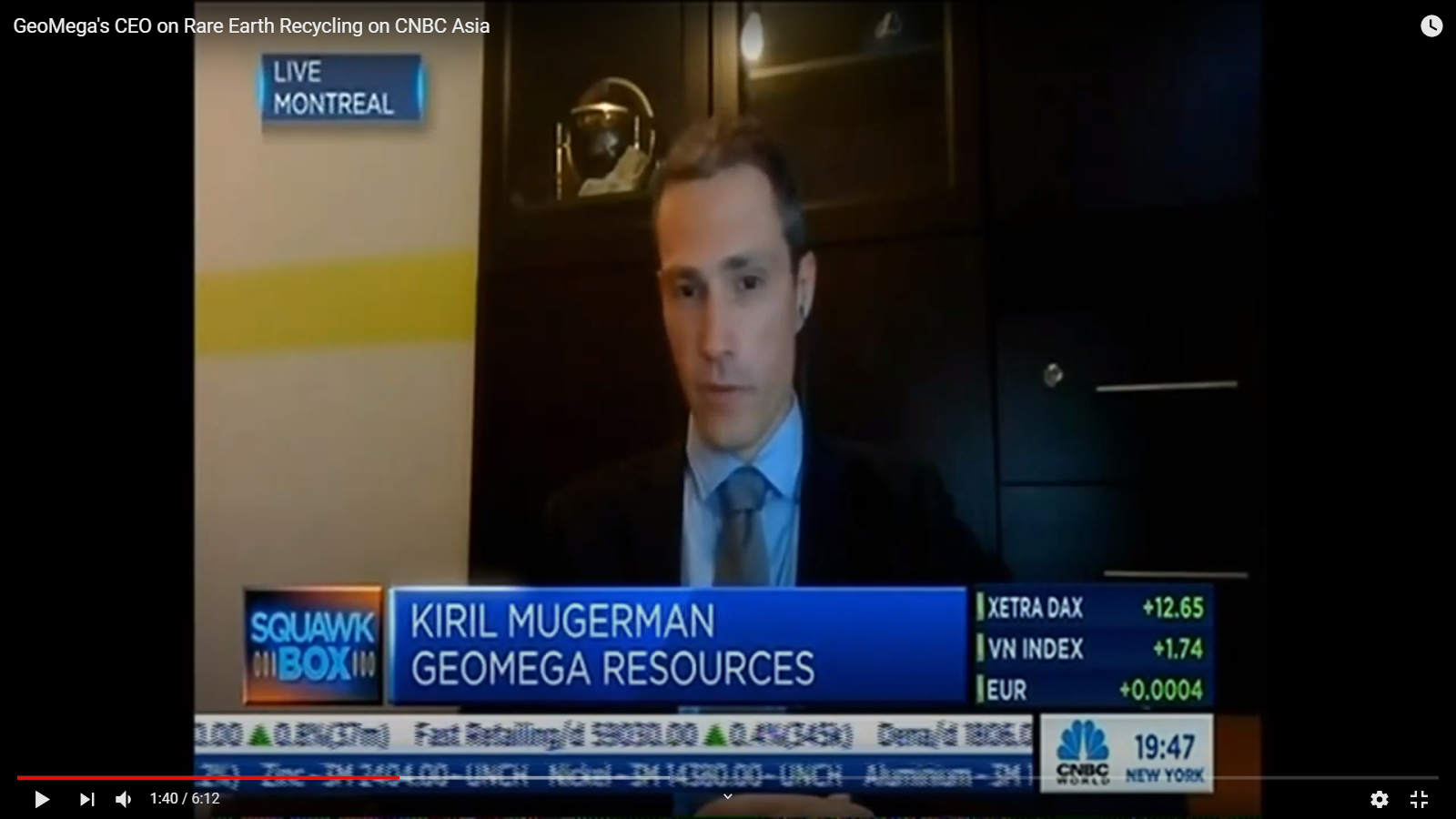GeoMega’s CEO on Rare Earth Recycling on CNBC Asia
Watch Mr. Kiril Mugerman, President & CEO of GeoMega Resources, appear as a guest on CNBC’s Squawk Box Asia where he discusses his company’s innovative, patented rare earth recycling process. Aired on August 10th, 2020.
GeoMega’s CEO on Rare Earth Recycling on CNBC Asia
CNBC: Coming up, exactly how rare is rare? It’s not a trick question. It’s not even a riddle. We’re going to be looking at the rare earth elements and explore how China’s dominance in the sector could be challenged by a new way of thinking about processing the materials. Kiril Mugerman, the President and CEO at GeoMega Resources, will be joining us to talk more about rare earths after the break.
CNBC: Welcome back. It’s Tuesday here on Squawk Asia and I want to show you some rare earth mineral companies. Take a look at some of those gains there, folks. In excess of wow 12%, almost 20% — some of China’s main players in the sector are on that board there. China, of course, is the world’s largest processor of rare earths — accounting for about 80% of the US supply. It’s just another contentious area with Washington looking to reduce its dependence on China for the materials. One company may have just found a way to do that by recycling rare earths. Let’s bring in Kiril Mugerman, President and CEO of GeoMega Resources joining us live out of Montreal, Canada. Kiril, good to talk to you. Good evening to your side. Thanks for staying up to do this and we hope you are keeping safe. Before we go anywhere else, please explain to us what exactly your company does.
KIRIL MUGERMAN: Hi Martin. GeoMega Resources, as you said, we recycle rare earths. It’s a different way of thinking of rare earth elements. If we look at the big rare earth bubble 10 years ago, then everybody always said “you need rare earths, let’s find a new mine.” We said, “Why start a mine if we are constantly mining them and using new material? What is happening to the old stuff?” So, we tried recycling. That’s really been our focus.
CNBC: Talk to me about why recycling is so important. When China does recycling of electronic scrap and the like, is there a cost to the environment? How can you potentially do it in a more clean fashion?
KIRIL MUGERMAN: Recycling is a very important way of life. The way we are thinking today of everything, we want a circular economy. A circular economy for everything — whether it’s the electronics that we are producing or the vehicle industry or many others. If we look at what China’s been doing for recycling rare earths, they’ve been really approaching it from the same point of view as mining. They’re using the exact same technologies — solvent extraction. Over the years, that has been shown to produce a lot of environmental damage. We want to look at the same thing, but do it in a cleaner way. When we say cleaner, we mean it. If we want to properly operate in North America with a recycling facility or a processing facility for rare earths, then we want to do it in a way where the reagents like acids or other chemicals we use — we want to reuse them as much as possible. In our case, we use acids as our main reagents. Our main acid is being recovered at over 95%. What does that mean? Once we start producing rare earths in our recycling facility, we will not have a tailings facility beside it. We will not have a waste pile accumulating beside it. And that is the main thing you don’t want to be associated with — nobody wants to have a waste pile beside their main city where they live.
CNBC: Well, there’s a big one in Malaysia from Lynas that continues to be an issue. Kiril, I understand how it’s cleaner, greener, more efficient, and therefore more economical to do what you do — but explain to us where recycling sits in the vertical chain? Is it the same as processing or is it an either-or? Either you extract or you recycle?
KIRIL MUGERMAN: If you look at the last 10-15 years, historically, everybody said recycling of rare earths is not sustainable. You cannot do it economically — it just doesn’t happen. If you look at all the data that’s been published over the years, it was always 1% at best, but I think what China has done over the last five to eight years is transformed a lot of the solvent extraction facilities into pure recycling. If you look at the data they are publishing now, they are producing 30% of rare earths from recycling. I think it’s very important to look at where recycling fits within the main production or the circular economy of rare earth elements. It’s very important to understand that recycling is there. It gets produced in a very similar way, but at the end of the day it is a different process. For our process, we are starting from recycling. At the end of the day, our next phase is going to be producing the rare earths from concentrates from other mines. But we will do that in a more clean and more sustainable way.
CNBC: Kiril, stay safe. Hope to talk to again soon on what you’re doing. Kiril Mugerman from GeoMega Resources live out of Montreal, Canada. We’re going to take a quick break Squawk is back after this.
Recycling of rare earths will be greener than extractive means: Expert
Kiril Mugerman of Geomega Resources discusses how recycling of rare earths could prove to be a cleaner and greener process than the extraction methods that China uses.
For media inquiries, contact:
Nancy Thompson, Vorticom, Inc.
212.532.2208
nancyt@vorticom.com

